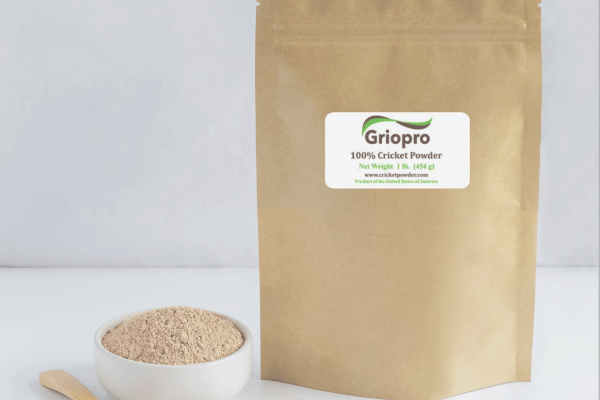All Things Bugs LLC, the world’s leading innovator in the insect industry, today announced that it has received a US patent for its unique production method as it continues to develop pioneering products and research in the use of insects as sustainable food ingredients.
US patent No. 11,337,451, issued on May 24, 2023, is the first US patent specifically focused on insects as a food source, and it confirms All Things Bugs and its Founder and President Dr. Aaron T Dossey as leaders in their field. The firm also has similar issued patents in Europe, Canada and Mexico.
All Things Bugs is the world’s first insect-based food wholesaler, and, for the last decade, the company has developed products, services and research to promote insects as a viable alternative to traditional protein sources such as meat and dairy. All Things Bugs has focused its efforts in four key areas:
1) Food product development
2) Insect processing and ingredients
3) Cutting-edge insect farming automation
4) Insect genomics and genetic engineering
The patent provides recognition of the company’s spray-drying technology, and opens up new opportunities for the use of insects in global food production.
All Things Bugs’ patented breakthrough involves the development of a new wet-grinding and drying technique that ensures edible insects can be ground into a fine powder. It is a process that works equally well with all insects including superworms, crickets, mealworms, grasshoppers, locusts, katydids, caterpillars or flies – emphasizing its versatility, and making it cost-effective to produce.
Crucially, it is an environmentally-friendly and sustainable way to increase protein content across a whole range of foods. The end product is a super fine, light-colored powder with a neutral aroma and flavor, which can be blended with other ingredients to make numerous food and beverage products, such as pasta, baked goods, shakes, smoothies, meat alternatives, puffed extruded snacks, bars, cereals, tortillas, pet food / treats and many others.
The growing need for a sustainable source of protein
Global food production has long relied on meat and dairy products as its main source of protein.
This has had a devastating impact on the environment, with costly resources required to sustain it. Huge amounts of land are cleared every year for farming and agriculture, with water and feed production for cows, pigs, chickens, and even most plant-based proteins generating massive land and water use as well as vast energy consumption on a global scale. Additionally, the current animal agricultural system has resulted in disastrous biodiversity loss and an era of mass extinction, particularly if more sustainable food systems such as insect protein are not implemented quickly.
By comparison, insects make up the largest most diverse group of organisms on Earth. They are nature’s most sustainable protein source, yet very little has been done to utilize insects for people and for our planet.
All Things Bugs takes a holistic view of the benefits insects can bring to humankind. As well as food production, the company is using genetic engineering technologies such as CRISPR to develop insects as a vehicle to manufacture non-food bioproducts for livestock and wild animal vaccines, antibiotics, biomaterials, enzymes and other applications.
Its valuable work continues to benefit researchers, entrepreneurs, farmers, policymakers, and anyone interested in sustainable food production and the industrial use of insects.
“This patent represents a historic opportunity for a shift in mindset towards an overall healthier planet,” said Dr Aaron T Dossey, Founder and President of All Things Bugs. “It proves the potential for turning insects into high quality ingredients efficiently and cost effectively. But, more than that, it is an ethical and sustainable solution to the ongoing challenge of scaling up food production without damaging life on earth in the process.”
Dr Dossey published the first text book on the subject, Insects as Sustainable Food Ingredients, and is a leading authority in the field, providing valuable guidance on how to develop the insect-based agriculture, food, and biomaterial industries.








